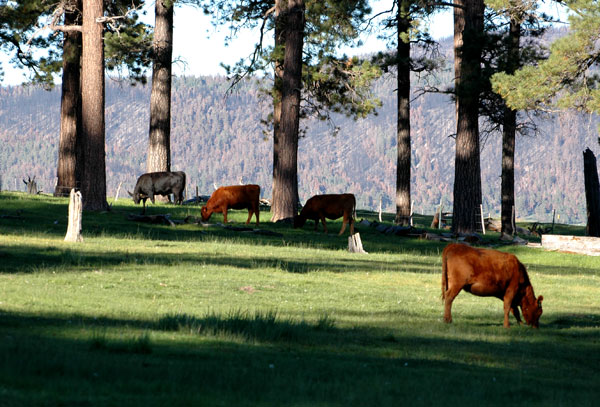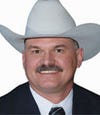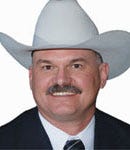Climate change reality check
Whatever one’s position may be on global climate change, I believe we can all agree that taking care of our environment is important. I also believe that questioning the science on these matters is important.
December 2, 2019

We would probably all agree that there is a healthy amount of skepticism among the agricultural community when the topic of climate change comes up. Our consumers, however, are being bombarded with misinformation.
Recently, Ellen DeGeneres, whom I think is a great entertainer, made some comments about eating less meat to combat climate change. I have been watching with interest Amanda Radke’s efforts to steer Ellen in the right direction. Unfortunately, Ellen did not invite Amanda on her show, but Amanda was able to get some media exposure.
Whatever one’s position may be on global climate change, I believe we can all agree that taking care of our environment is important. I also believe that questioning the science on these matters is important.
The report “Livestock’s Long Shadow,” published by the United Nations Food and Agriculture Organization in 2006, is credited with shining the first light on agriculture’s contribution to climate change. And, even though many of the figures in the report have been debunked, they are still often repeated in cyberland.
Let’s start with the basics — the U.S. EPA reports that transportation accounts for 29% of greenhouse gas (GHG) emissions; electricity, 28%; industry, 22%; commercial and residential, 12%; and agriculture, 9% (livestock specifically, 3%). Clearly, livestock production is not the low-hanging fruit for climate change effect. Perhaps Ellen, a vegan, has an ulterior agenda by promoting #BeNeatEatLessMeat.
If there is low-hanging fruit, it would appear to be in transportation. According to the National Air Traffic Controllers Association, the association manages 87,000 flights every day in America’s airspace. This level of activity burns 17.87 billion gallons of airline fuel annually. I couldn’t find any data for flights and fuel in the 1970s.
However, there are now around 263 million registered vehicles in the U.S., as compared with around 111 million in 1970. Even though there are 2.4 times as many registered vehicles today than there were in the 1970s, surely the improved efficiency of today’s cars would offset the fuel consumption, correct? Well, not entirely. The U.S. currently burns 384.74 million gallons of gasoline per day, as opposed to 247.1 million gallons per day in 1970.
You may wonder why I compare today’s numbers to the 1970s. The reason is that our cattle population peaked in the 1970s at about 130 million head. We now have around 94 million head, a 28% reduction. Our dairy herd peaked in 1944 at 25.6 million head. Our current dairy cow population is a little over 9 million head, a 65% reduction.
Even with these lower populations, we are producing more beef and milk than ever. So, while beef and dairy efficiency have improved drastically, and there has been a substantial decrease in the population of cattle, other major causes of GHG emissions have expanded significantly.
It’s no wonder ag community folks are skeptical. If our elected employees develop plans to reduce GHG emissions, those plans constantly have a major component addressing cattle. Or, as one elected employee so eloquently put it, “cow farts.”
Of course, the fact that the gas in question comes out the other end of the animal makes one wonder if some of those elected employees know their heads from their ... tails.
Even within the ag community, there are those who accept that climate change is real, while others do not. I hope all of us have at least considered the prospect that climate change is real, even if we’re not convinced that it is man-made.
But if we’re truly serious about reducing GHGs, shouldn’t we focus more on the sources of GHGs that are expanding, rather than the sources that have a proven track record for reducing GHGs? I think even our entertainers and other experts would agree.
Sjeklocha is a technical services veterinarian for Merck Animal Health. Reach him at [email protected].
About the Author(s)
You May Also Like





